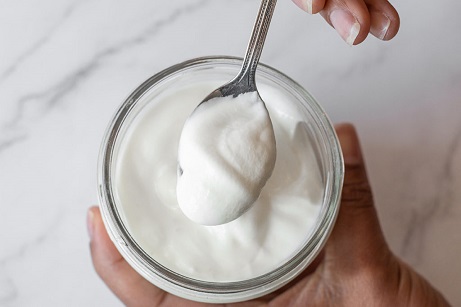
Your body needs the right nutrients to function at its best.
Feeling down sometimes is a normal part of life. But if that feeling of sadness lingers for a long time and interferes with your daily activities, you might be dealing with depression.
Depression can be tough, but there are ways to manage it and feel better. One surprising way to help your mood is by eating healthy foods. Just like a car needs the right fuel to run well, your body needs the right nutrients to function at its best. This includes your brain, which controls your mood.
Eating certain foods can give your brain a boost and help you feel more positive. Here are 5 nutritious options to add to your plate when you’re feeling down:
- Fish and nuts
Omega-3 fatty acids, like the ones found in fatty fish like salmon, sardines, and mackerel, are building blocks that help keep your brain strong and healthy. Omega-3s can also help improve your mood and reduce symptoms of depression.
Not a fish fan? Don’t worry. You can also get omega-3s from nuts like walnuts and flaxseeds.
They are a great source of healthy fats and protein, which can also help you feel more energised.
- Eggs
Eggs are a breakfast staple for many, and for good reason! They’re packed with protein, which helps keep your blood sugar levels stable. This can help manage depression symptoms, as blood sugar swings can sometimes lead to mood changes.
But the real sunshine in this dish comes from the yolk. Egg yolks contain vitamin D, which our bodies get from sunlight. Vitamin D deficiency has been linked to depression, so including eggs in your diet can be a natural way to get some sunshine from the inside out.
- Whole grains
When you’re feeling down, reaching for sugary snacks might seem tempting. But those sugary highs are often followed by crashes that can worsen your mood. Instead, opt for whole grains like brown rice, quinoa, and whole-wheat bread. They are full of fibre and help you feel full and satisfied for longer.
Whole grains also contain B vitamins, which are essential for brain function and can help regulate your mood. Plus, complex carbohydrates in whole grains can help your body produce serotonin, a brain chemical that plays a role in feelings of happiness and well-being.
- Fruits and vegetables
Fruits and vegetables are packed with vitamins, minerals, and antioxidants that can help fight inflammation in the body, which has been linked to depression. Not only that, fruits and vegetables are naturally sweet and colourful, which can be a mood booster in itself. So grab a handful of grapes, munch on some carrots, or enjoy a slice of your favourite fruit – your taste buds and your brain will thank you.
- Yoghurt
The good bacteria in yoghurt, called probiotics, can help improve your gut health, which has been shown to be linked to mood regulation.
Eating yoghurt regularly might help reduce symptoms of depression and anxiety. Plus, yoghurt is a great source of protein and calcium, which are important for overall well-being.
NB: These foods can be helpful, but they’re not a magic cure for depression. If you’re struggling with your mood, it’s important to seek professional help from a doctor or therapist.







